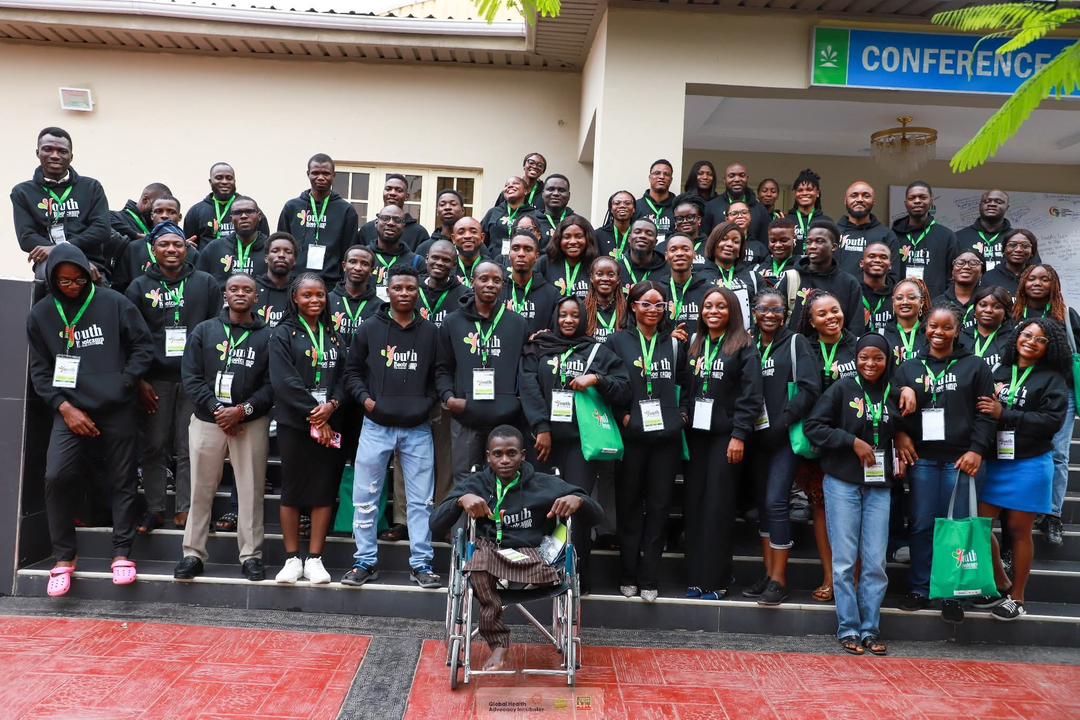…In Nigeria, food is no longer just about taste or tradition; it has become a battle of survival, dictated by what the market makes available
By Mariya Shuaibu Suleiman
At first glance, the setting looked like a holiday retreat , the famous Ikogosi Warm Springs in Ekiti State, with its quiet hills and flowing streams. But for the young Nigerians gathered there, the conversations had nothing to do with leisure. They came to confront a silent crisis spreading through the country’s kitchens and supermarkets: Nigerians are eating themselves sick, not by choice but by circumstance.
The Youth Bootcamp for Food Justice 2025, organised by Corporate Accountability and Public Participation Africa (CAPPA) in partnership with the Global Health Advocacy Incubator (GHAI), drew participants from across the six geopolitical zones.
Over the course of one week, the sessions revealed a troubling reality many already knew but seldom name, in Nigeria, food is no longer just about taste or tradition; it has become a battle of survival, dictated by what the market makes available.
“The problem of food justice is very grave and serious,” said Professor Adelaja Odukoya, Dean of the Faculty of Social Sciences at the University of Lagos.

His words hung heavy in the room. “Today, availability dictates food choice. We are forced to eat what is available instead of what is desirable, what is nutritious, or what is beneficial to the body.”
His statement captured the frustration of millions of families.
On shop shelves and roadside stalls, soft drinks, instant noodles, salty snacks, and fast foods are cheaper, more visible, and more aggressively advertised than fresh and nutritious alternatives. For many, a balanced meal is not a choice — it is a luxury.
The results are written in the country’s hospitals.
CAPPA’s Executive Director, Akinbode Oluwafemi, warned that diet-related illnesses now stand as one of Nigeria’s biggest public health threats.

Non-communicable diseases: hypertension, diabetes, stroke, cancers — already account for about 30 per cent of all deaths. Even more troubling, nearly one in four of those deaths occur prematurely between the ages of 30 and 69, years meant for raising families and building national productivity.
“This crisis stands as one of the greatest threats to the health and future of our country,” Mr Oluwafemi said.
He explained how the shift in diets over the past two decades, driven by urbanisation and relentless marketing, has altered the nation’s health. “What makes this worse is the heavy advertising. These companies promote unhealthy foods as modern, desirable, and convenient while hiding their health risks and making healthier options harder to choose.” He lamented.
For advocates like CAPPA’s Assistant Executive Director, Zakora Ibeh, the challenge is not only health but fairness. “If a product is high in salt, sugar, or fat, it should be boldly indicated for everyone to see,” she said.

Adding that, “This is how we can begin to reverse the growing trend of diet-related diseases in Nigeria.”
She, along with other campaigners, pressed for urgent government action: higher taxes on sugar-sweetened beverages, mandatory front-of-pack labelling, and a national sodium reduction programme.
These steps, they argued, would make the food environment safer and give citizens a fighting chance at healthier living.
Still, policies on paper are not enough. For CAPPA, building a movement of informed young Nigerians is key. “Non-communicable diseases were once associated with the aged,” said Abayomi Sarumi, Associate Director of CAPPA’s Food Justice Programme.
“Today they are rising among young people. That is why youth voices matter in this struggle.” He noted.
Among the bootcamp participants, that message resonated. Okoro Uchechukwu, one of the participants, described food justice as the guarantee that “everyone has access to affordable, nutritious, and culturally appropriate food.”

Another participant, media enthusiast, Hope Ogunka, reflected on the lessons she would carry back home.
“To influence public policy, we must have the courage to speak the truth, especially in the food space,” she said.

By the end of the retreat, the young advocates left with a sense of urgency: they were not just trained, they were charged with the task of pushing against powerful forces — food corporations, misleading advertising, weak regulation — that profit while ordinary Nigerians are left to “eat what is available.”
Emmanuel Uche, a young advocate from the South-East, said the camp reminded him that “food justice is about equity — about making sure that healthy options are not a privilege for the few but a right for all.” He said.
Blessing Adeoye, from the North-Central stressed that the fight should not only target corporations but also challenge weak government oversight. “We cannot keep allowing policies to stay on paper while Nigerians suffer preventable diseases,” she argued.
As the sun set over the hills of Ikogosi, one truth remained clear. Until healthy food becomes both affordable and accessible, Nigerians will continue to live and die at the mercy of what the market offers, not what their bodies truly need. And for a country already battling rising deaths from preventable diseases, that is a cost far too heavy to bear.



